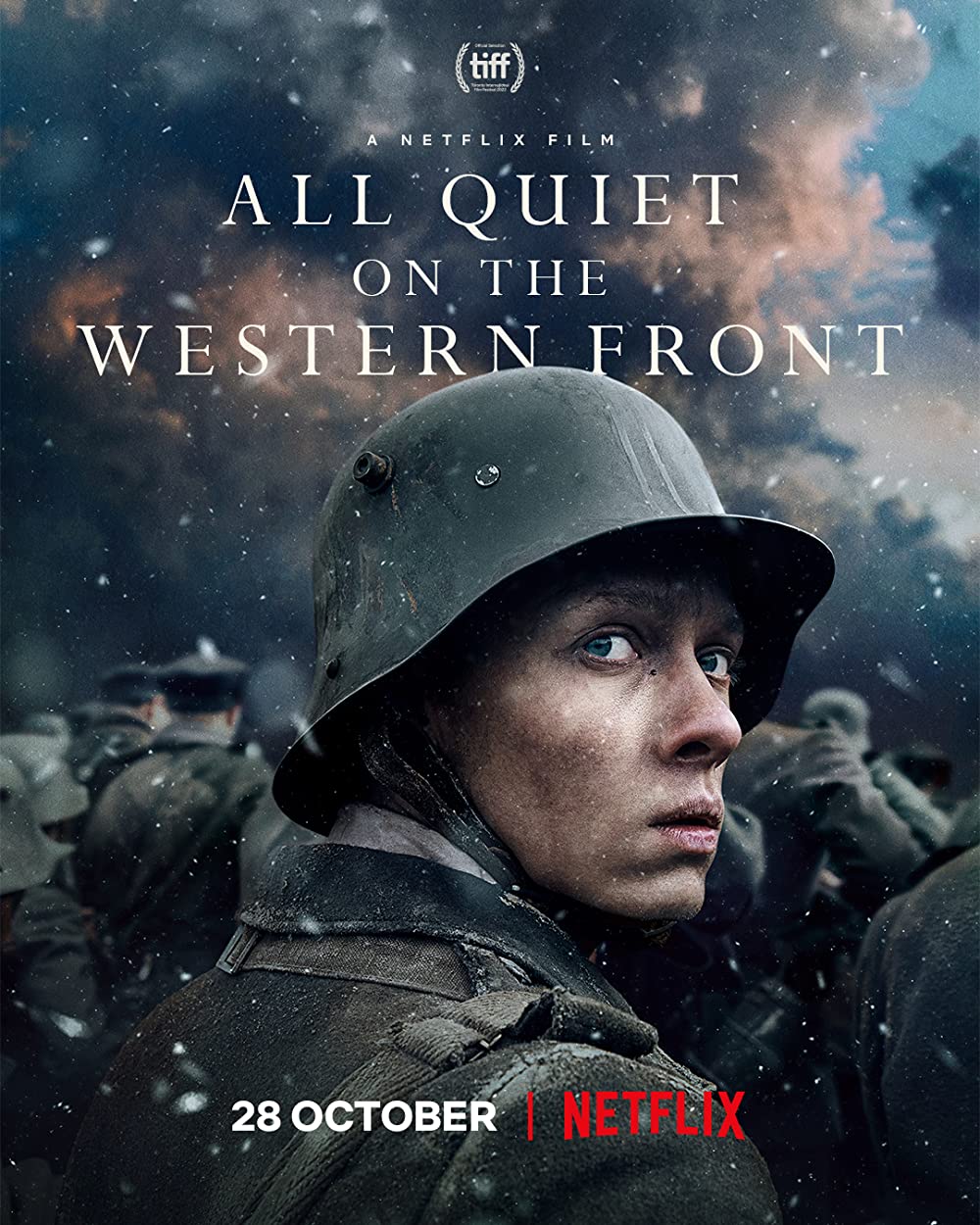Introduction
Brutal and unforgettable, Edward Berger’s All Quiet on the Western Front updates the classic novel and Oscar-winning film to the highest of technical standards. The film delivers an unflinching and captivating look at the pointlessness of war.
Synopsis
Felix Kammerer stars as Paul, an idealistic German who lies about his age to join his friends to fight in World War I in 1916. Paul, along with Franz (Mortiz Klaus), Albert (Aaron Himler), and Tjaden (Edin Hasanovic) soon are relieved of their romanticized views of war. The only thing that keeps them alive is the sage advice of veteran soldier Kat (Albrecht Schuch).
The war drags on as the men barely eat and barely survive battle after battle. Scrounging in the cold and mud, the men find solace in each other’s company and dream of an end to this never-ending battle.
Another Remake?
These days, studios churn out pointless remakes mostly for cash grabs and pre-established notions of nostalgia to get eyes on their films. If you had told me a remake of All Quiet on the Western Front was coming, I would have told you it is a terrible idea. But, this film is a notable exception to the rule. The 1930 original was notable for its realistic depiction of the brutality of war, but there were still limitations due to the technology of the time.
Not only that, the 1930 film is from the perspective of Germans fighting in Europe, played by Americans. As exceptional as the 1930 version is, the updated version fixes every problem the original was faced with. Germans are played by German actors speaking their language. The war violence is brutal and realistic. Each and every technical aspect is utterly flawless. The film is an immersive experience of the utter pointlessness of a World War I battlefield. That doesn’t mean this version is a carbon copy of the original. The general plot is relatively the same, though the famous ending is changed as well as some smaller plot deviations.
Flaws
That also doesn’t mean the film is perfect. We spend a little too much time focusing on the armistice talks headed by Matthias Erzberger (Daniel Brühl). The film also hammers home the differences between generals and enlisted men, especially the unnecessary cruelty of a German general (Devid Striesow) which no-so-subtly portrays the impending rise of German fascism.
But that’s all nitpicky stuff. The film is exceptional out on the battlefield, in the trenches, or in the small bits of respite between the men. The film cackles with nervous energy. The soldier’s doomed souls are bared out for the audience to see. Nothing feels comfortable and no brief moment of quiet and joy is enjoyed. Any life can come to an end at any moment.
Cast/Direction
Each actor begins the film with a clean face and sly smile, which quickly gives way to exhaustion and despair. Kammerer gets the bulk of the camera time and utilizes his impossibly green eyes to stare into the abyss and wonder how he is still alive. He doesn’t dwell on the hope of getting out, just surviving the next day. Schuch is more seasoned but maintains a sense of hope in a different way than others. The other soldiers carry a sense of ignorance, while Kat is realistic but still hopeful.
No actor makes a fool of themselves. Despite caring little about his character, Brühl is always a reliable presence. The same goes for Striesow. This is not the type of film where actors steer the narrative. That being said, every actor is more than capable.
Berger directs the film with a respectful yet unflinching hand. War has rarely been as simultaneously ugly and beautiful. Characters marvel as a light flare illuminates a pitch-black battlefield, but stare on in horror as the site of tanks close in on their position. Snowy woods seem innocent, but an atmosphere of impending doom exists, even in the most innocent of faces.
Summary
Updated to the highest of technical standards, All Quiet on the Western Front is the new benchmark on which future remakes should stand. All you need is a little authenticity and a director willing to put in the substantial work necessary to convey the message.
